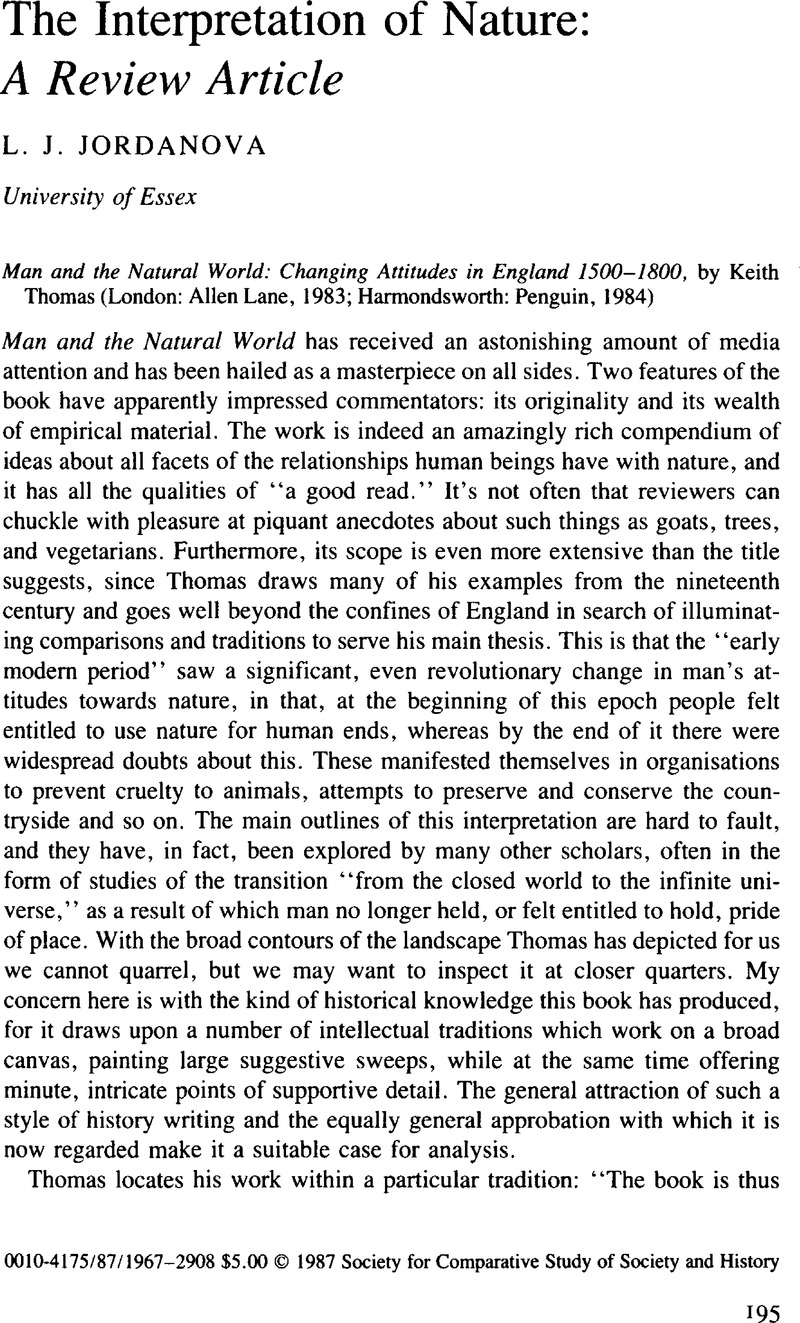Article contents
The Interpretation of Nature. A Review Article
Published online by Cambridge University Press: 03 June 2009
Abstract

- Type
- CSSH Discussion
- Information
- Copyright
- Copyright © Society for the Comparative Study of Society and History 1987
References
1 Another example of the “sentiments” approach is Stone, L.The Family, Sex and Marriage in England, 1500–1800 (London, 1977Google Scholar). There is a critical discussion of this approach in Anderson, M., Approaches to the History of the Western Family 1500–1914, (London, 1980), ch. 3CrossRefGoogle Scholar; see also Scott, J. W., “The history of the family as an affective unit,” Social History, 4, 509–16 (1979CrossRefGoogle Scholar). Thomas's highly critical review of Stone's book is illuminating; Times Literary Supplement, 21 10 1977, 1226–27Google Scholar.
2 See, for example, Merchant, C., The Death of Nature: Women, Ecology and the Scientific Revolution (New York, 1980Google Scholar). Easlea, B., Fathering the Unthinkable: Masculinity, Scientists and the Nuclear Arms Race (London, 1983Google Scholar); Keller, E. Fox, Reflections on Gender and Science (New Haven, 1985Google Scholar); MacCormack, C. P. and Strathem, M., eds., Nature, Culture and Gender (Cambridge, 1980Google Scholar) and Jordanova, L. J., ed., Languages of Nature: Critical Essays on Science and Literature (London, 1986)Google Scholar.
- 12
- Cited by


